AI in Supply Chain: Embracing Future with Gen AI & Automation
Deepak shared his insights on the latest trends, strategic implications, and the practical applications of these cutting-edge technologies. He also provided a glimpse into the future of supply chain management, emphasizing the potential for significant advancements and improvements. This insightful discussion highlighted NextGen Invent’s commitment to integrating innovative solutions to redefine the landscape of supply chain operations.
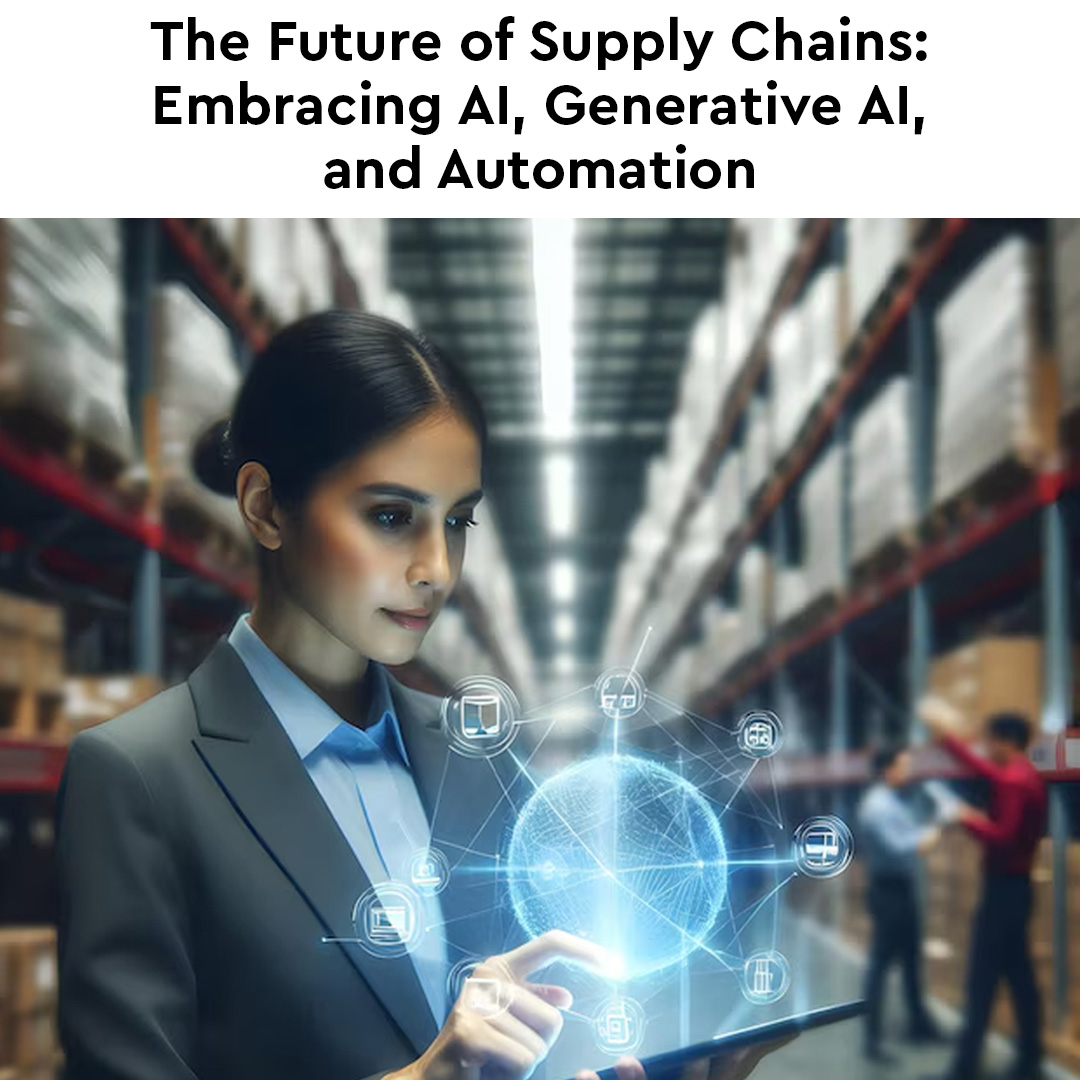
Optimize Your Supply Chain with AI: Boost Efficiency, Reduce Costs, and Stay Competitive!
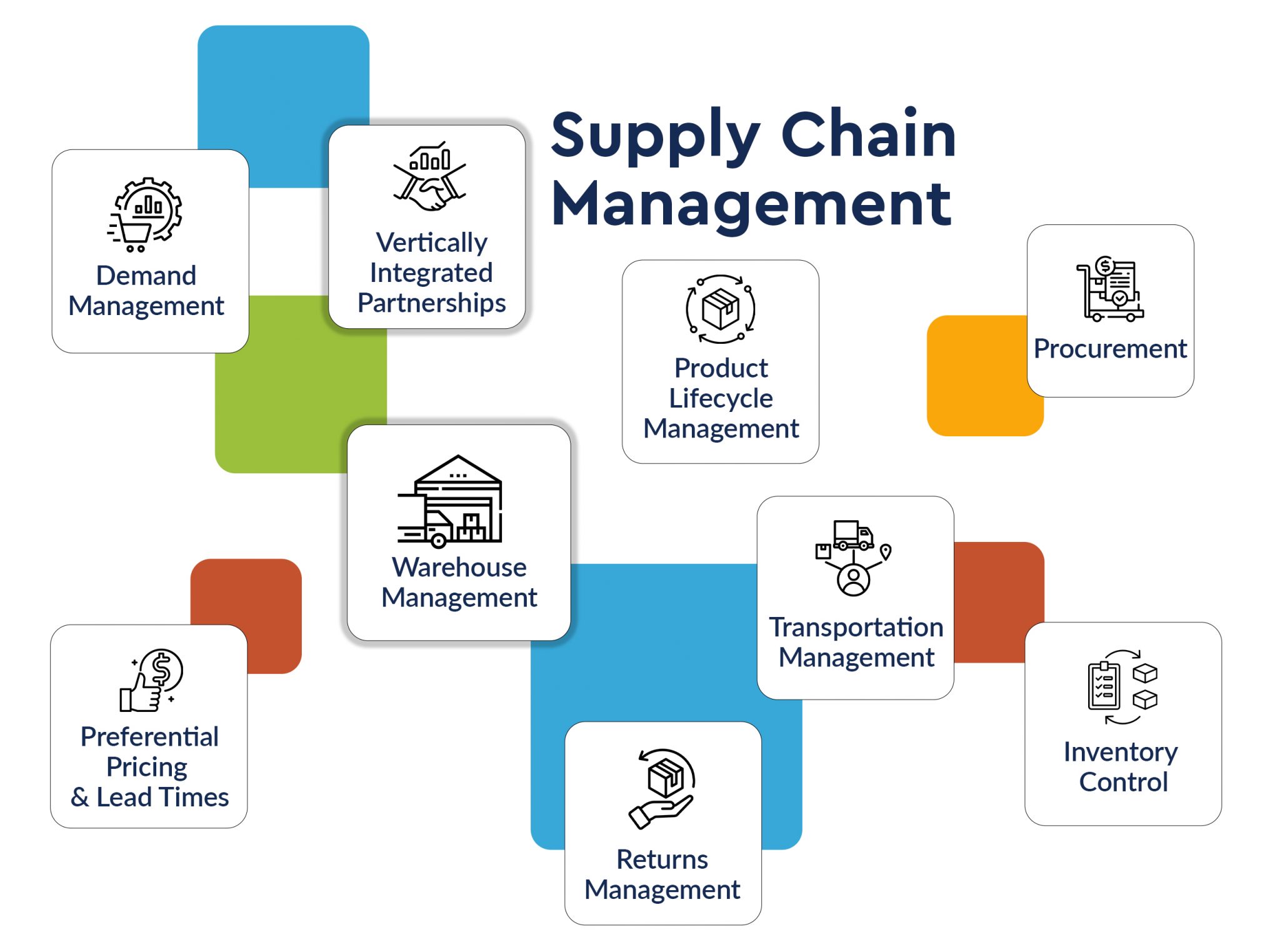
Importance of AI, Gen AI, and Automation in Supply Chain
Integrating Gen AI, automation, and AI in supply chain is a transformative force. These technologies offer a shift in how supply chains operate, providing avenues for enhanced efficiency, agility, and adaptability. With AI’s ability to analyze vast datasets and derive actionable insights, supply chain decision-making becomes more data-driven and precise.
Gen AI in supply chain brings forth the potential for autonomous decision-making and learning, further streamlining processes and improving responsiveness. Automation, meanwhile, optimizes repetitive tasks, reducing human error and increasing productivity.
- Data-driven decision-making is paramount, with AI providing the tools to analyze vast amounts of data and derive actionable insights.
- Geopolitical conflicts, economic fluctuations, and changing consumer behaviors underscore the need for adaptive supply chain strategies.
- Manufacturing relocations and evolving market trends necessitate agile logistics and transportation solutions.
- AI in supply chain offers the promise of unparalleled efficiency, agility, and visibility in supply chain operations, enabling organizations to navigate complexities and uncertainties effectively.
Collectively, these advancements empower organizations to go through various market conditions, mitigate risks, and stay ahead in an increasingly competitive market.
Exploring AI’s Role in Supply Chain: Key Points Addressed
During the interview, Tarun posed eight pivotal questions, uncovering the transformative potential of AI, Generative AI, and automation in the supply chain industry. Deepak Mittal offered insightful answers, illuminating the profound impact of these technologies in optimizing supply chain operations. The discussion highlighted how these advancements are not only enhancing efficiency but also reshaping the future of supply chain management.
 Tarun Mittal: Can You Provide an Overview of the Current State and the Trends of AI Reshaping Supply Chain & Logistics?
Tarun Mittal: Can You Provide an Overview of the Current State and the Trends of AI Reshaping Supply Chain & Logistics?
Deepak Mittal: I begin by emphasizing a data-driven approach, stating that my response needs to be based on data. Regarding market trends, I analyzed publicly available data from various logistics, transportation, warehouse, and cold storage companies. This analysis revealed several impactful trends affecting supply chain and logistics companies:
- Profits are becoming Razor-Thin due to rising fuel costs and increases in employee benefits.
- The market is impacted by global uncertainties like high interest rates and geopolitical conflicts.
- Many companies are shifting manufacturing to other countries, potentially impacting logistics and transportation patterns.
- Companies are increasingly prioritizing sustainability and focusing on strategic partnerships and community agreements.
I also delve into the current state of AI adoption, noting that over 80% of enterprises have implemented some form of AI. The focus has shifted from questioning why AI to determining what and when to implement it. As per the NextGen Invent Supply Chain AI Center of Excellence, the most prominent areas of AI implementation within the supply chain and logistics are as follows:
- 70% of companies are implementing some level of Demand Forecasting.
- 68% of companies are concentrating on Route Optimization.
- 59% of companies are focusing on using AI in Risk Management.
Looking towards the future, the potential contributions of AI to the global economy, citing a report suggesting AI could contribute up to $15.7 trillion by 2030. I envision a collaborative environment where partnerships evolve into AI that uses shared data across organizations, leading to the emergence of Ecosystem AI.
Additionally, I predict a cultural shift towards an insights-driven culture and highlight the role of Generative AI in document generation and customer communication, as well as Copilot’s progression from routine tasks to expert engineering tasks. The expansion of demand forecasting into capacity planning and end-to-end operations optimization emphasizes the growing importance of customer experience in organizational strategies.
Tarun Mittal: How is AI in Supply Chain Helping Brands and Retailers Enhance Their Operations and Customer Experiences?
Deepak Mittal: My addition underscores the practical applications of AI in improving customer experience. I share insights into NextGen Invent initiatives, such as creating 13 pilots to showcase Generative AI’s power in enhancing customer service and journey.
Notably, one compelling use case involves leveraging AI-driven copilots to sift through vast volumes of product-related documents and provide expert assistance directly to customers or support customer service teams.
Tarun Mittal: What Ways Does AI Enable a Company’s Supply Chain to Become a Strategic Asset for Gaining a Competitive Advantage?
Deepak Mittal: I begin by emphasizing the power of knowledge and how AI in supply chain acts as the engine converting data into actionable insights, thereby increasing efficiency and fostering innovation in products and services.
Drawing from Michael Porter’s framework identifies two key forces of competitive advantage related to the supply chain: Supplier Power and Buyer Power. AI in supply chain contributes to reducing supplier power by aiding in capacity planning, risk management, and supply chain resilience. It also empowers companies by providing them with the foresight needed to navigate buyer dynamics effectively.
Insights from Statista underscore the tangible benefits of AI implementation, including revenue improvement and cost reduction. The profitability gained from enhanced efficiency enables companies to reinvest in research and development, further strengthening their competitive position. Specific AI-driven use cases, such as demand forecasting and scheduling optimization, have demonstrated significant efficiency gains ranging from 20% to 35% in respective areas.
Tarun Mittal: Can You Share Some Insights into How AI Is Being Used to Optimize Demand Forecasting and Inventory Management?
Deepak Mittal: AI optimizes demand forecasting and inventory management, emphasizing the value of integrated business planning and accurate forecasts. Harvard Business Review, affirms that precise demand forecasts lead to higher inventory turnover, reduced stockouts, and improved financial performance. Accurate forecasting can cut inventory costs by up to 20%, underlining its importance across departments and SOPs.
Insights gleaned from their implementation experience:
- Integrated AI in supply chain is essential for operational planning, linking various aspects such as SKU segmentation, pricing, inventory optimization, and fleet management. This holistic approach transforms demand forecasting into a strategic tool for gaining a competitive advantage.
- Addressing data challenges is critical. For instance, apparel retailers facing SKU changes can leverage solutions like mapping SKUs and utilizing derived SKUs to streamline inventory management and enhance forecasting accuracy.
Tarun Mittal: What Are Some Use Cases of Deploying AI in Logistics, Specifically in Warehouse and Transportation Domains?
Deepak Mittal: Providing insights into various use cases relevant to deploying AI in logistics across warehouse and transportation domains.
- Copilot with significant potential across different workflows, benefiting employees at all levels, from floor workers, and supervisors to executives and vendors. A central hub for accessing information, streamlining processes, and improving decision-making.
- In transportation, UPS’s uses of AI and machine learning algorithms to optimize package delivery operations. UPS utilizes AI-powered routing optimization software to determine the most efficient delivery routes, reducing fuel consumption and transportation costs. UPS also employs predictive analytics algorithms to forecast package volumes, optimize package sorting processes, and enhance delivery performance.
Tarun Mittal: What Challenges Do Supply Chain Leaders Face When Implementing AI, and How Can These Challenges Be Overcome?
Deepak Mittal: By addressing the prevalent myths surrounding AI adoption, I am emphasizing a stat from Gartner, that top-performing supply chain organizations are investing in AI and machine learning at a higher rate than their low-performing peers. The top challenges in adopting AI in supply chain management include data quality issues (49%), lack of skills (34%), and understanding of AI technology (31%). Sometimes the challenges are myths.
- IP and Data in Public Corpus: A prevalent myth about General AI is that incorporating data into its training corpus infringes on intellectual property (IP) rights or privacy. Most AI models, including those developed by OpenAI, provide a subscription service for their model, and those subscription services are designed with stringent ethical guidelines that respect IP rights and ensure data privacy.
- Will My Solution Be Obsolete and New Version of ChatGPT/OpenAI Will Come: Proprietary datasets and specialized knowledge integrated into AI solutions can provide unique value that is not easily replicated, even with general advancements in AI technology. This ensures longevity and relevance in the market, regardless of the pace of AI evolution.
“Most Times, Your Unique Preposition is data, not method, methods can change”- Deepak
I underscore the importance of adoption for ROI on technology and AI spending, and there are four reasons for low adoption: choosing the wrong problem, incentives mismatch, lack of good user experience, and change management challenges.
Tarun Mittal: As a Senior Supply Chain Leader, How Do You See the Role of AI in Supply Chain, and Which Areas Can Significantly Benefit from AI?
Deepak Mittal: Four key categories where AI can significantly impact the supply chain:
- IoT Integration with AI: The seamless integration of IoT sensors with AI algorithms enhances inventory accuracy. This integration can revolutionize inventory management by providing real-time insights and predictive analytics.
- Routine Tasks Automation: AI-powered systems can automate routine tasks such as appointment scheduling, labor management, dynamic slotting, and safety checks. By automating these processes, organizations can improve efficiency, reduce errors, and optimize resource allocation.
- Operations Planning and Optimization: AI-enabled Sales and Operational Planning (S&OP) to bridge the gap between planning and execution in the supply chain. AI-driven S&OP processes can enhance decision-making, streamline operations, and improve overall performance.
- Real-time Feedback with GenAI CoPilot: GenAI-enabled Copilots in providing real-time assistance to warehouse workers, drivers, and supervisors. These virtual assistants offer insights, analyze performance metrics, and offer strategic advice, enhancing operational efficiency and decision-making.
Leveraging AI in supply chain can streamline processes, improve accuracy, and drive innovation, ultimately enhancing the overall performance and competitiveness of their organizations.
Tarun Mittal: Looking Ahead, What Are Your Predictions for the Future of Automation & AI in Supply Chain Industry, and How Should Companies Prepare for These Changes?
Deepak Mittal: AI in supply chain will impact every aspect of operations, and companies slow to adopt AI risk losing their competitive edge and facing higher operational costs. Lead the AI transformation rather than being left behind.
“Lead the transformation or be led by it. It’s essential to lead the AI transformation rather than be left behind.”- Deepak
Key Takeaways:
- Collaboration is Key: The opportunity for AI to evolve from silos into enterprise AI and then into ecosystem AI, enabling multiple organizations, vendors, customers, and partners to collaborate and enhance efficiency. This presents an opportunity for leaders to guide their organizations into this new era, making decisions on buying, building, or partnering in the AI ecosystem.
- Skill Upgrade: Technology is going to change faster than we have seen in the past. The level of expertise needed in niche areas of technology and AI will become more prevalent. Work with specialized relatively smaller and mid-size companies that can infuse knowledge and agility in the organization. By leveraging external expertise, companies can stay nimble and responsive to changing industry landscapes.
Collaborate with technology partners and AI vendors to remain at the forefront of this revolution, emphasizing the involvement of professionals in the field to provide innovative solutions tailored to specific supply chain requirements.
Wrapping Up
The interview provided invaluable insights into the transformative potential of AI, Generative AI, and automation in the supply chain industry. Through engaging discussions led by industry expert Deepak Mittal, various critical aspects were explored, including current trends, challenges, and future predictions. From optimizing demand forecasting and inventory management to enhancing customer experience and operational efficiency, AI in supply chain emerged as a powerful catalyst for innovation across the supply chain. The conversation highlighted the importance of proactive adoption and collaboration to stay ahead in an increasingly AI-driven marketplace.
It’s imperative to remain informed and actively participate in such insightful discussions. We invite you to join us in our upcoming events to continue exploring the latest ai trends, strategies, and innovations shaping the future of various industries. Together, let’s embrace the opportunities presented by AI and automation to reimagine and revolutionize the way we operate in the supply chain industry.
Don’t miss out – stay connected and stay ahead with our upcoming events.
Related Blogs
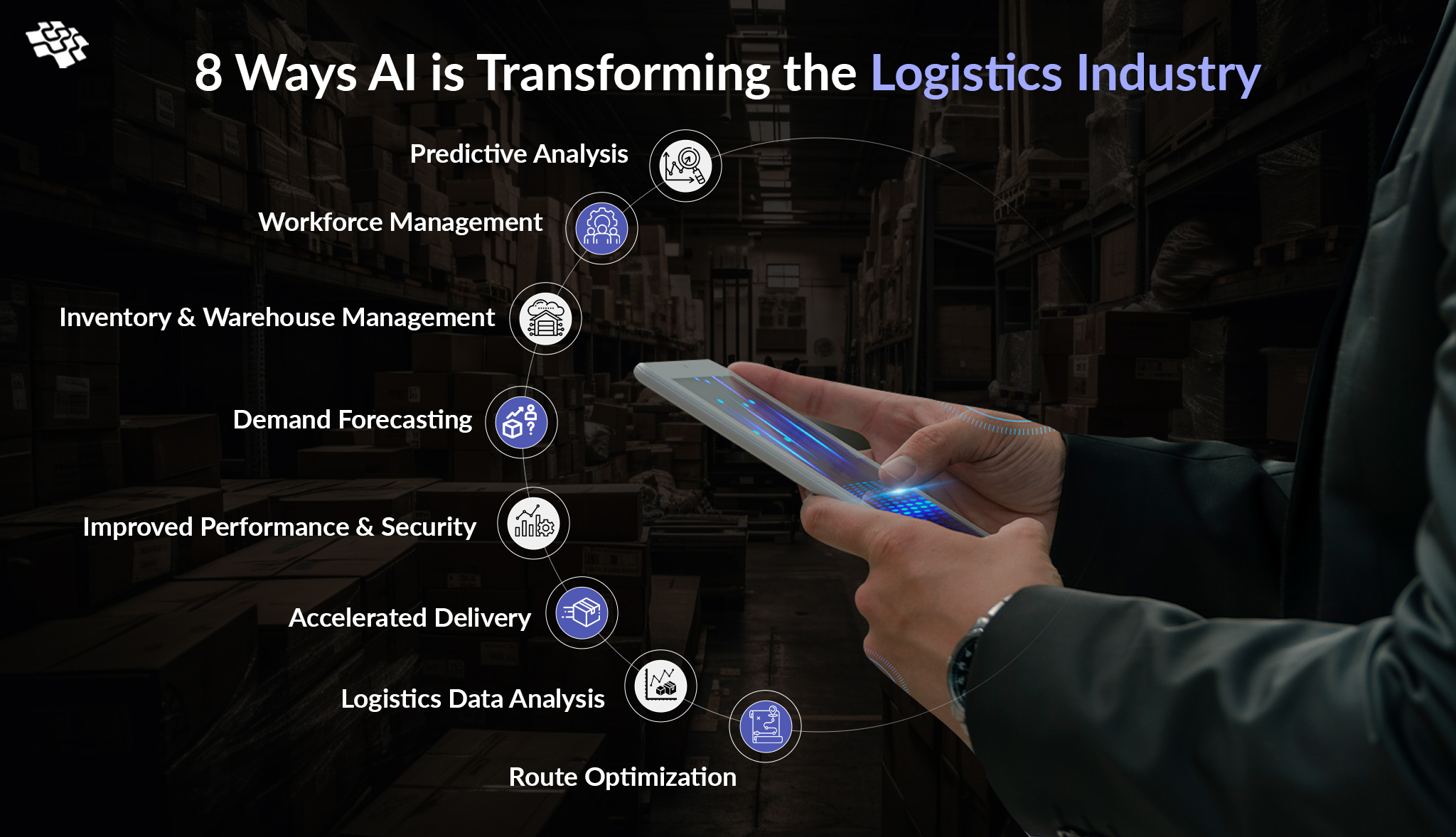
Top 8 Ways AI Is Transforming Logistics & Supply Chain Industry
AI in logistics plays a significant role by assisting executives in the consumer products industry in making decisions more quickly, precisely, and efficiently. This is made possible by its capacity to collect enormous, diverse data sets and then instantly evaluate the information to deliver insights.
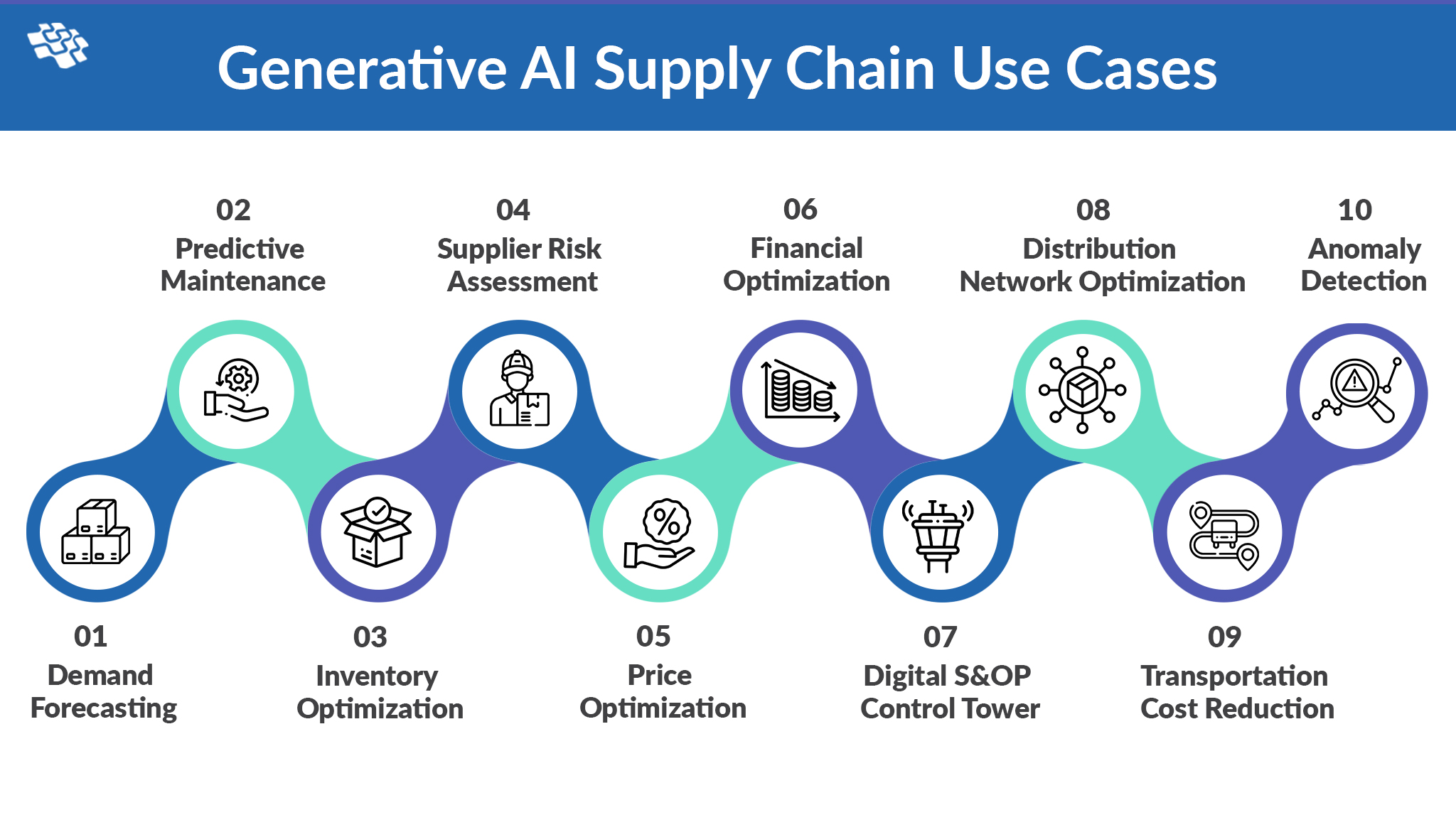
10 Most Crucial Use Cases of Generative AI in Supply Chain Industry
That explains why Generative AI in supply chain is being used more and more. A significant subgroup of AI that employs machine learning algorithms has captured business interest. Generative AI holds the potential to streamline all supply chain operations.
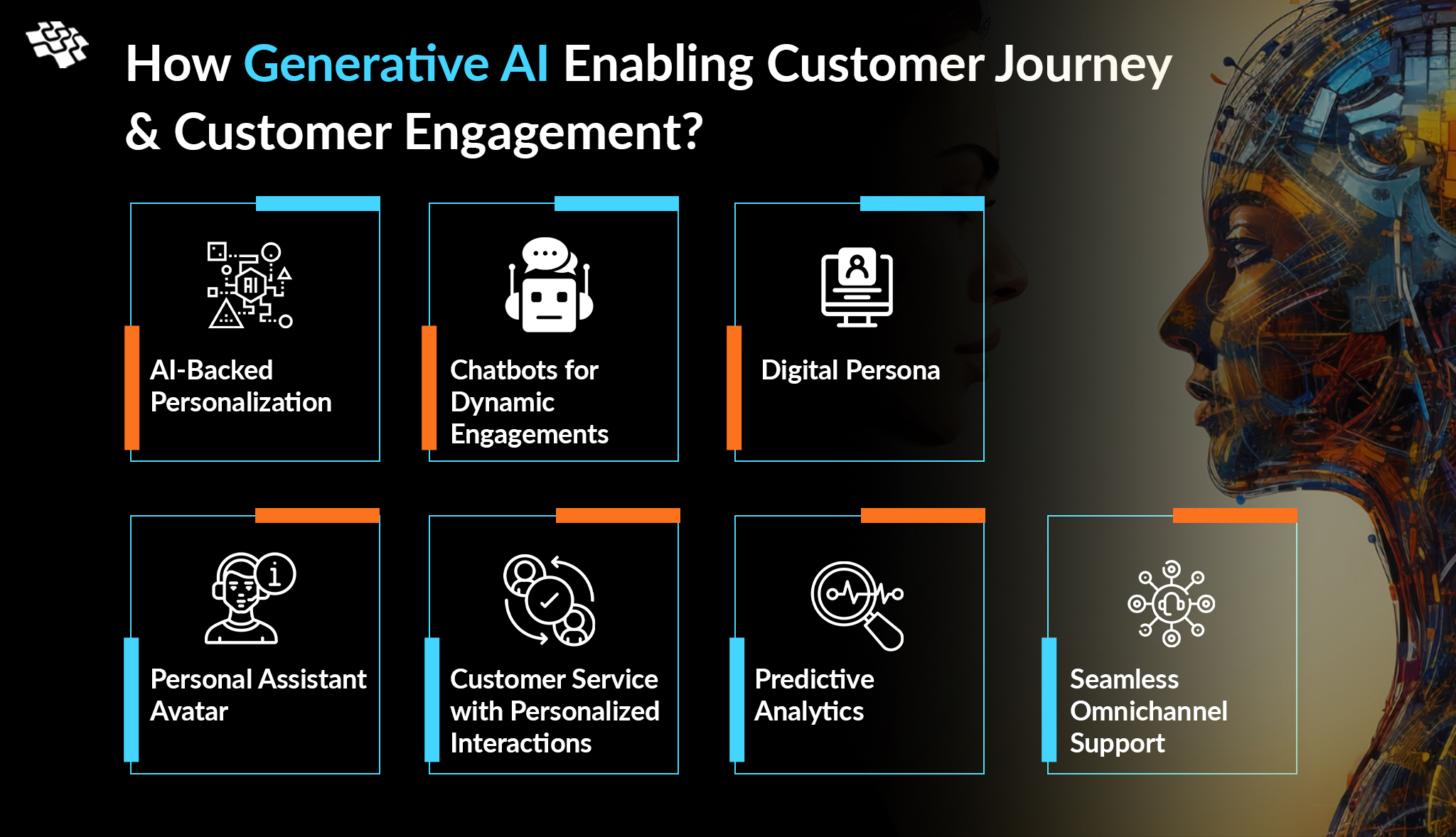
How Generative AI Automation Enables Customer Engagement?
When placing an order, requesting a product exchange, or having a billing issue, modern clients want extraordinary experiences that include timely, thorough responses to their inquiries. While traditional AI models provide users with fast service, they have several drawbacks.
Stay In the Know
Get Latest updates and industry insights every month.
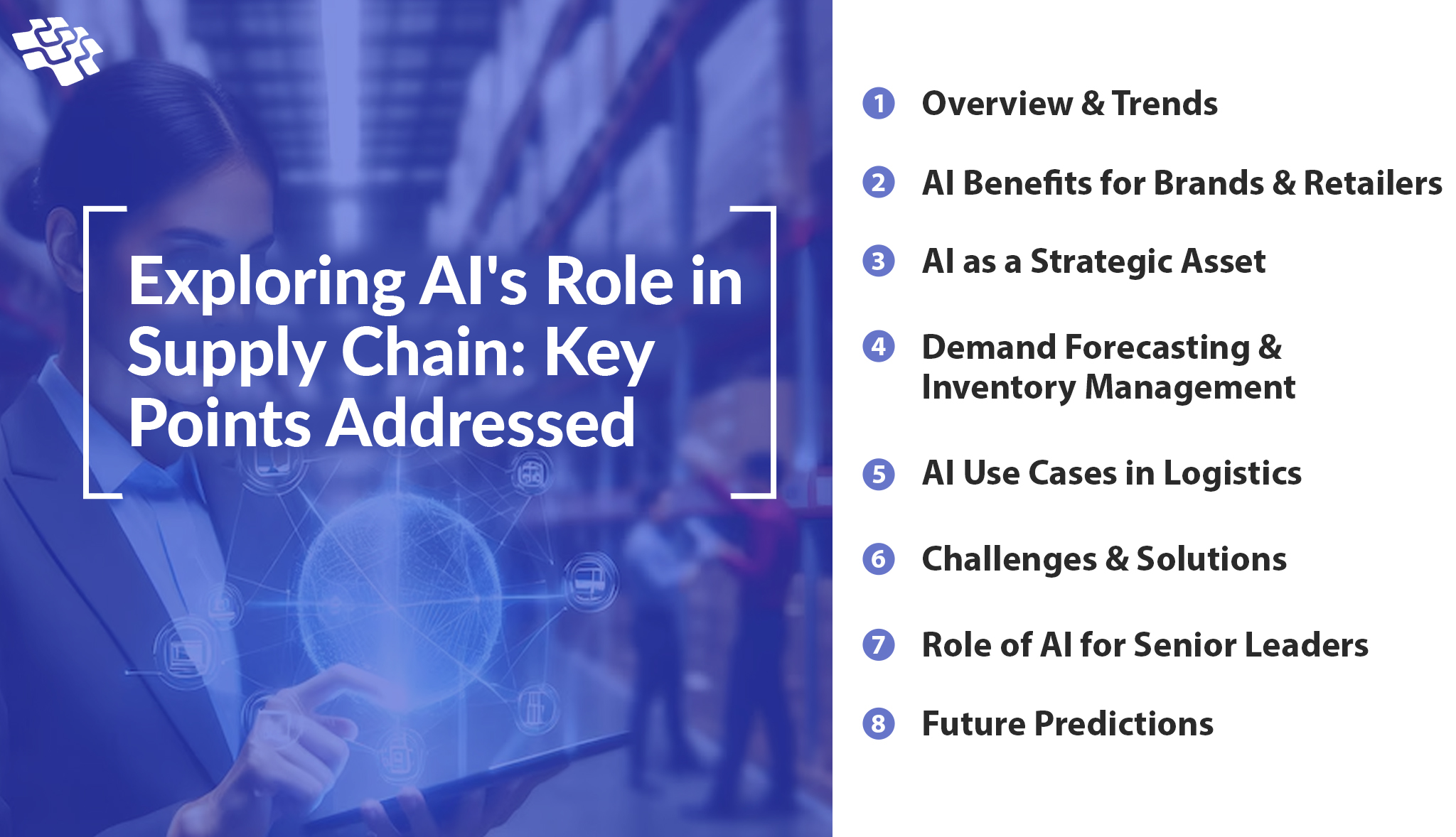 Tarun Mittal: Can You Provide an Overview of the Current State and the Trends of AI Reshaping Supply Chain & Logistics?
Tarun Mittal: Can You Provide an Overview of the Current State and the Trends of AI Reshaping Supply Chain & Logistics?